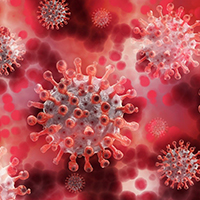COVID-19 - Collection of articles on the Coronavirus outbreak
9 June 2020
Vol. 90 No. 2 (2020)
High flow nasal cannula oxygen therapy in adults with COVID-19 respiratory failure. A case report

Publisher's note
All claims expressed in this article are solely those of the authors and do not necessarily represent those of their affiliated organizations, or those of the publisher, the editors and the reviewers. Any product that may be evaluated in this article or claim that may be made by its manufacturer is not guaranteed or endorsed by the publisher.
All claims expressed in this article are solely those of the authors and do not necessarily represent those of their affiliated organizations, or those of the publisher, the editors and the reviewers. Any product that may be evaluated in this article or claim that may be made by its manufacturer is not guaranteed or endorsed by the publisher.
5093
Views
2450
Downloads






